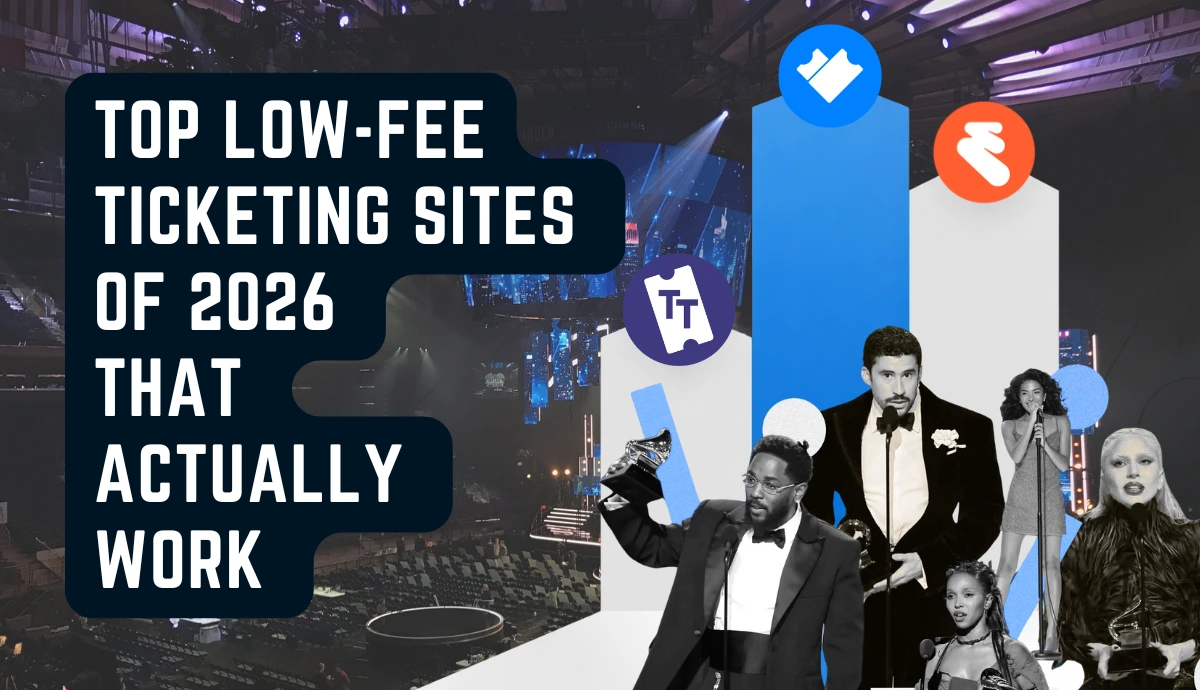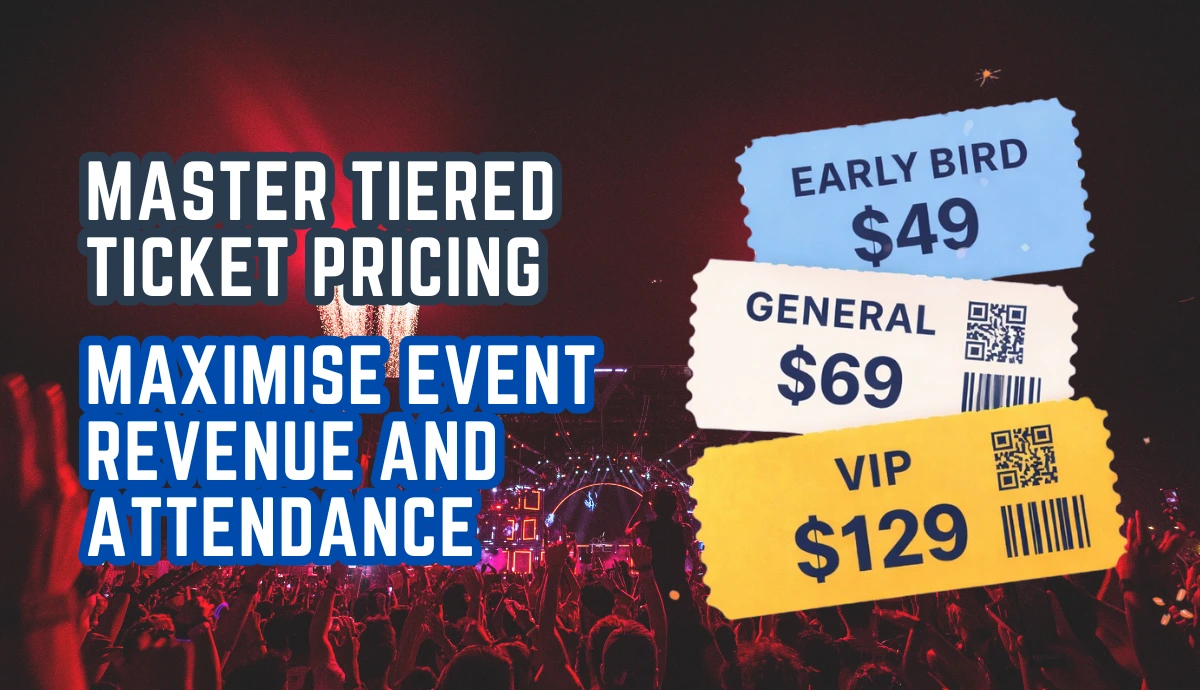When it comes to planning an event, there are many things to consider. From venue size and food options to entertainment and staffing needs, there's a lot that can go wrong if you don't plan ahead.
But one thing that's often overlooked is what happens after your event ends: the post-event survey.
While this may sound like a simple and obvious thing to do, most event planners fail to ask their attendees for feedback.
And without solid data on what people thought about your event, you can't improve it next time around.
So, how can you ensure that your next event is a success? By asking these key post-event survey questions in 2024!
Let's dive in!
A. Why is post event survey important
Post-event surveys are essential for several reasons. An accurate understanding of attendees' feedback allows organizers to identify areas of improvement, enhance the event experience, and make informed decisions for future events.
Besides, these surveys offer valuable information about trends, attendee satisfaction, and feedback that is instrumental in optimizing the event planning process.
1. Improve event experience

A well-executed post-event survey offers insights into areas needing improvement, discussing attendees' likes, dislikes, and pain points. By understanding the factors most important to your audience, you can make thoughtful adjustments and deliver a better experience at subsequent events.
2. Monitor trends & preferences
Post-event surveys provide real-time data on what participants consider valuable or engaging. This helps you to identify what attendees like and don't like, as well as their preferences in regard to topics, speakers, food options, and more. This information is crucial for planning future events that will meet your audience's expectations.
3. Strengthen relationships
Post-event surveys create a channel for communication between organizers and attendees. Think about it: when attendees are asked to provide feedback, they feel more invested in the event and its organizers. This makes them more likely to recommend your next event and even attend again.
4. Enhance marketing efforts
The data collected from post-event surveys can offer insights into the demographics of your attendees. Additionally, it can help identify the most effective marketing channels, messaging, and promotional strategies to optimize outreach for future events.
5. Assess ROI and benchmarking
Analyzing survey data equips you to make a better assessment of your event's return on investment (ROI).

Collecting standard data points, such as attendee satisfaction and perceived value, can provide a benchmark to gauge the performance of future events and refine your event strategy.
Though you can collect these from attendees, you also need more information about the tickets sold and how many attendees have actually shown up to the event to get a more accurate picture of your event's ROI.
With Ticket Generator, you can generate a report with the number of tickets sold, how many attendees have shown up at the event, and other data points that can help you assess the performance of your event.
B. 30 post-event survey questions divided into unique categories
Here are the 30 post-event survey questions that we’ve divided into unique categories:
i. General experience
- How would you rate your overall experience of the event?
- Was the event better, worse, or about what you expected it to be?
- What was your favorite part of the event?
- What was your least favorite part of the event?
ii. Convenience & organization
- How would you rate the venue/location (if applicable)?
- How would you rate the convenience of the event's date and timings?
- How well-organized was the event?
- How effective was the event's registration process in terms of ease and efficiency?
iii. Staff & communication
- How professional was the event staff?
- How clear and helpful were the event communications (before, during, and after)?
iv. Content & relevancy
- Were the topics and content presented at the event relevant and valuable to you?
- Was there a speaker or session that particularly impressed you? If so, who or what, and why?
v. Logistics & recommendations
- What did you think about the overall length of the event?
- Would you come back to this event again next time?
- Would you recommend our event to a friend or colleague?
vi. Suggestions & improvements
- How could we improve your overall event experience?
- What topics would you like to see included in our next event?
vii. Technology & access
- How effective was the use of technology (live streaming/app/interactive elements) at the event?
- Was the event accessible and inclusive enough (in terms of location, facilities, and content)?
viii. Event Format and other aspects
- How did you prefer the format of the event? (Virtual, In-person, Hybrid)
- What type of event swag or merchandise did you enjoy receiving?
- Would you have preferred more networking opportunities?
ix. Food and beverages
- Was the selection of food and beverages satisfactory (if applicable)?
- Are there any other types of sessions or activities you would like to see in our next event?
x. Marketing and sponsors
- How did you hear about our event (which marketing channels)?
- How would you rate the visibility and relevancy of the event's sponsors?
xii. Personal impact & pacing
- How impactful do you think the event was for you, personally or professionally?
- Was the pacing of the event (too fast, too slow, about right)?
xiii. Additional feedback
- Please share any additional feedback or suggestions you have for us.
- How likely are you to participate in our future events?
C. Select the right way to collect feedback
There are multiple ways to collect feedback from your attendees. Some of them include:
1. Star rating

Utilizing a numerical or star-rating system simplifies the feedback process for participants by allowing them to quickly indicate their level of satisfaction about a particular aspect of the event. Ratings usually range from 1 to 5 or 1 to 10, with the upper limit indicating greater satisfaction.
This method is beneficial as:
- They provide a straightforward and visually intuitive feedback mechanism.
- They allow for easy comparison and quantification of satisfaction levels, facilitating statistical analysis.
However, while star ratings provide a quick snapshot assessment, they may not fully capture qualitative aspects or specific details about an attendee's experience.
2. Multiple-choice questions (MCQs)
MCQs present attendees with predefined answers to choose from. They are a quick way for respondents to answer and can be effective in gathering demographic information or preferences about event aspects like topics, speakers, or formats.
Benefits of MCQs include:
- They yield structured data that's easier to analyze numerically.
- They can touch upon multiple aspects of the event succinctly.
- MCQs can include an 'other' option with a text box, allowing respondents to provide unique responses when the listed options don't fully capture their sentiments.
The limitation of MCQs is that they cannot capture nuanced feedback or complex thoughts.
3. Yes/No questions
Yes/No questions, also known as binary or dichotomous questions, present respondents with a choice between two options - typically 'Yes' or 'No.'
Advantages of Yes/No questions are:
- Their simplicity ensures clarity, minimizing the risk of misinterpretation.
- They can be useful for gathering foundational data or as a filter for more granular questions.
However, they do limit the depth of responses and don't allow for nuanced perspectives.
4. Open-ended questions
Open-ended questions do not provide predefined responses, offering respondents the freedom to express their opinions, feelings, or experiences in their own words.
Benefits of open-ended questions include:
- They provide qualitative data that can offer in-depth insights into attendee experiences.
- They allow respondents to express complex thoughts, feelings, and ideas that cannot be captured through predefined answers.
The main challenge with open-ended questions is that the responses obtained can be difficult to analyze and categorize due to their unstructured nature.
It's important to note that a successful event survey typically employs a blend of all these question types. While the nature of the feedback you require may steer you towards one form over another, a mix typically yields the most comprehensive insight.
Conclusion
The importance of the post-event feedback collection process cannot be overstated. It's equally important to understand how to manage and interpret this data to improve future events. A platform offering robust data and reporting features is crucial in this process.
Ticket Generator is one such platform tailored to serve your ticketing needs while also prioritizing data-reporting capabilities. It is designed to help you tap into crucial event metrics that are integral to assessing the overall performance and success of your event.
Ticket Generator allows you to generate comprehensive reports detailing the number of tickets sold, the actual number of attendees, and other essential data points. Such metrics can significantly impact your post-event analysis, providing a fuller view of the event experience beyond just verbal or written feedback from attendees.
The advantage is that Ticket Generator can be the all-in-one solution for ticket generation to data reporting. It eliminates the need for you to use multiple tools to handle these processes separately and allows you to create a streamlined workflow.
Start designing your tickets now; the first 10 tickets are on us!






.gif)






